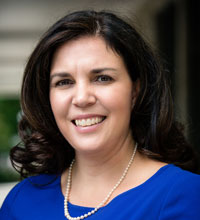It is appropriate that Anne Barnard’s front-page New York Times piece on Haitian Catholicism, entitled “Suffering, Haitians Turn to Charismatic Prayer” appeared on Thanksgiving Day, for one of the strongest themes of the Haitian Catholic Charismatic movement is gratitude. During the nearly two years of fieldwork I conducted in Haiti and among the Haitian Catholic communities of Miami, Montreal and Paris for my book Faith Makes Us Live: Surviving and Thriving in the Haitian Diaspora, I was also struck by how often Haitian Catholics thanked God for such blessings as food (however meager), life (however difficult) and faith (however severely challenged).
The Modern Ideal of Autonomy—and Its Discontents
Many U.S. observers have been confounded over the decades by the resilience of Haitians’ faith in the face of poverty, dictatorship and—in January 2010—the worst natural disaster in the country’s history. Perhaps their joy in the midst of suffering confuses us because we moderns so often seek security in our homes, cars, neighborhoods, jobs, and health. We believe that we can hide out from human frailty in a fortress of material comforts. A modern narrative of autonomy and self-fulfillment so common in the U.S. leads us to believe that our happiness depends fundamentally on ourselves. To suffer, then, seems a moral failure—a failure to fulfill our characteristically modern aspiration to self-sufficient success.
True, human beings are made for happiness and fulfillment. But to find them, we need relationships. And relationships demand that sometimes we be willing to sacrifice our own desires, and to allow ourselves to receive the gifts others can give us. Human persons desire other human connections even more fundamentally than material comfort. Despite this fact, any priest, pastor, mental health professional or educator can tell you that the psychological ills of depression and loneliness afflict millions of Americans. And this may be partly because we believe so much in autonomy that we do not know how to live with others.
As University of Houston researcher Brené Brown has argued, if we flee the vulnerability that comes with human relationships, we numb our emotions—and hence we numb a basic source of joy, creativity, belonging, and love. If we believe we are autonomous and capable of self-fulfillment, what place is there for gratitude? The flight from vulnerability, suffering and dependence thus leads to isolation.
A Lesson from the “Stranger”
Appearing as it did on Thanksgiving Day, Ms. Barnard’s excellent reporting on Haitian Charismatic Catholics reminded us that there is a different way.
For one thing, it reminded us of the centrality of gratitude to the Christian Gospel. In fact, the Greek root of the word Eucharist means “to give thanks.”
At a Mass on Thanksgiving Day near my home, Father Emmanuel Katongole, the co-director of the Center for Reconciliation at Duke Divinity School, reminded us that in the Eucharist, God takes mere bread and wine and performs miracles. For Catholics and other Christians who believe in the Eucharist, it symbolizes that—each and every day—we can offer to God our meager possessions and he can work miracles in response.
At the same time, for people of all beliefs, the national celebration of Thanksgiving served as a similar reminder—and a corrective to the pervasive modern narrative of autonomy and self-fulfillment. By giving thanks for our blessings, we open up ourselves to receive the gifts only others can give us. And we open up our lives to be a gift to others.
In the Gospel lesson read at Thanksgiving Mass, Jesus cured ten lepers, but only one of them, a Samaritan, returned to give thanks. “Ten were cleansed, were they not?,” Jesus says in Luke 17: 17-18. “Where are the other nine? Has none but this stranger returned to give thanks to God?”
In the aftermath of Thanksgiving, Ms. Barnard’s Times story and my own research show that the Samaritan strangers in our midst have something to teach us. Many Haitian Catholics, strangers to most Americans, teach us how to give thanks to God even as many of us have forgotten how to live in gratitude and openness to our neighbors.




4 thoughts on “Another Modernity: Thanksgiving among Haitian Catholics”